Expanding knowledge since 2011
Knowledge to assist with the implementation of managing activities in the seas and research to understand the seas better has been expanding in a number of ways. Some main examples in which Scottish organisations have been taking a lead are outlined below. Scotland has been actively involved in key scientific collaboration projects and European marine spatial planning initiatives all investigating different elements of planning and collaborative scientific working that will give insight to the marine environment.
Scientific collaboration

EMBRC (2018 – on)
The European Marine Biological Resource Centre (EMBRC-ERIC) is a pan-European Research Infrastructure Consortium (ERIC) for marine biology and ecology research. With its services, it aims to answer fundamental questions regarding the health of oceanic ecosystems in a changing environment, enable new technologies to further our investigation capabilities, support life-science breakthrough discoveries with the use of marine biological models, and continue long-term marine monitoring efforts. EMBRC-ERIC is a driver in the development of blue biotechnologies, supporting both fundamental and applied research activities for sustainable solutions in the food, health and environmental sectors.
Establishment of the EMBRC-ERIC was adopted by the EU Commission in February 2018. Formal operations started in summer of 2018 although preparatory work has been underway since 2011.
UK involvement is led by Marine Scotland. The UK Node has six partners: the British Antarctic Survey, (BAS), the Marine Alliance for Science and Technology for Scotland (MASTS), the Marine Biological Association (MBA), the Scottish Association for Marine Science (SAMS), Scottish Government (through Marine Scotland), and the University of St. Andrews (through the Scottish Oceans Institute, SOI).
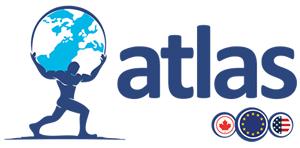
ATLAS (2016- 2020)
The EU ATLAS project (A trans-Atlantic assessment and deep water ecosystem based spatial management plan for Europe) is a four year Horizon 2020 funded assignment under the 'blue growth' call, which aims to provide critical new information of deep ocean ecosystems in the North Atlantic. By advancing the understanding of deep Atlantic marine ecosystems, it aims to increase the capacity to model, monitor and predict shifts in these ecosystems. Integrating new information with existing data, ATLAS is developing tools and improving science led management strategies to help provide effective ocean governance and stimulate blue growth.
ATLAS is made up of 26 multi-stakeholders and partners across a range of organisations with 12 Universities, 4 national research institutes (one is Marine Scotland), 6 small and medium sized enterprises (SMEs) and 4 government agencies (of which Marine Scotland Science is one) across 10 European counties, the United States and Canada.

iAtlantic (2019 – 2022)
iAtlantic is a new multidisciplinary research programme seeking to assess the health of deep-sea ecosystems across the full span of the Atlantic Ocean.
iAtlantic launched in June 2019 and will run for 4 years. The multidisciplinary consortium of 33 partners is led by the University of Edinburgh and includes Scottish partners Heriot-Watt University and Scottish Association for Marine Science.
Marine scientists from countries bordering the north and south Atlantic Ocean have joined forces to assess the health of ecosystems in the deep sea. They hope to determine the resilience of both the animals that live there, and their habitats, to threats such as temperature rise, pollution and human activities. The new iAtlantic project aims to deliver knowledge that is critical for responsible and sustainable management of Atlantic Ocean resources in an era of unprecedented global change.
iAtlantic is funded by a €10.6 M grant from the European Union's Horizon 2020 programme.
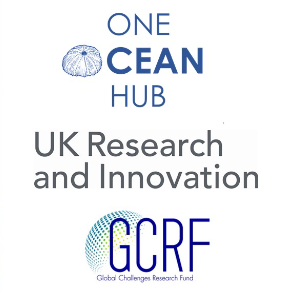
One Ocean
https://www.strath.ac.uk/research/strathclydecentreenvironmentallawgovernance/oneoceanhub/
The One Ocean Hub is led by the University of Strathclyde with 24 worldwide research partners, and 35 project partner organisations.
The Hub is funded by UK Research and Innovation (UKRI) through the Global Challenges Research Fund (GCRF) - which is a key component in delivering the UK AID strategy and puts UK-led research at the heart of efforts to tackle the United Nations Sustainable Development Goals.
The One Ocean Hub aims to transform the response to the urgent challenges facing the ocean.
Its research seeks to bridge current disconnections in law, science and policy and integrate governance frameworks to balance multiple ocean uses with conservation. It strives to empower the communities, women and children, most reliant upon the oceans, to inform decisions based on multiple values and knowledge systems.
The Hub specifically addresses the challenges and opportunities of South Africa, Namibia, Ghana, Fiji and Solomon Islands, and will share knowledge at regional (South Pacific, Africa and Caribbean) and international levels.
Marine spatial planning initiatives
The Marine Spatial Planning (MSP) Directive (2014/89/EU) prompted a number of EU member states to undertake MSP. The EMFF (European Maritime & Fisheries Fund) was agreed in 2014 to provide financial support for activities to implement it. Marine Scotland has participated in a number of these to learn and contribute Scottish MSP experience to this new area of responsibility. Projects are outlined below.
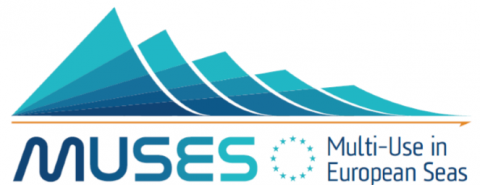
MUSES (2016-2018)
The Multi-Use in European Seas (MUSES) project was a two year Horizon 2020 funded project that explored the opportunities for Multi-Use in European Seas across five EU sea basins. MUSES built on existing knowledge to investigate the real opportunities for Multi-Use in European Seas and presented practical solutions on how to overcome existing barriers and minimize risks associated with Multi-Use development. The project was co-ordinated by Marine Scotland, with 9 other partners from Germany, Poland, Italy, Azores, Greece, Netherlands and Scotland concluding in October 2018. As a direct result of the MUSES project, the Scottish Government are working towards a study on Multi-use in Scottish waters.
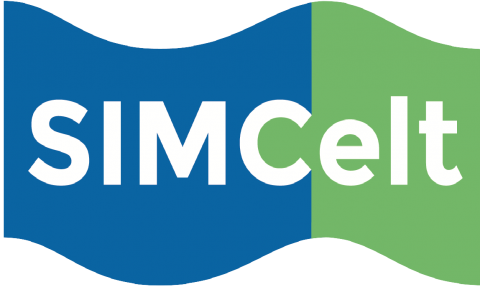
SIMCelt (2016-2018)
Co-funded by the European Commission under the European Maritime & Fisheries Fund, SIMCelt (Supporting Implementation of Maritime Spatial Planning in Celtic Seas) promoted practical cross-border cooperation between the Republic of Ireland, France and parts of the UK in order to implement the EU Maritime Spatial Planning Directive. The initiative supported the development of practitioner-focused, ecosystems-based management tools to support coherent transboundary marine planning, building upon existing mechanisms for cross-border working to enhance cooperation, engagement and knowledge exchange between those at different stages of marine planning. Enabled by Marine Scotland's participation in SIMCelt, the Scottish Coastal Forum led on case studies that allowed the Clyde Marine Planning Partnership and the Solway Firth Partnership to test these tools in the context of real-life transboundary marine planning.
The CMPP used MSP Challenge as an innovative method of stakeholder engagement around the Clyde Marine Region. This strategic, role-playing approach enabled stakeholders of all ages, from school children to retirees, to find out more about the interactions that arise when multiple marine-related activities take place in the same shared sea area and how marine planning offers an opportunity to accommodate them. The MSP Challenge equipment has been used around Scotland as a legacy from the SIMCelt project, enabling other areas to be successfully introduced to the concept of regional marine planning even if Regional Marine Plans for their areas have not yet been developed.
The Solway Firth is Scotland's only cross-border estuary and its case study explored the realities of one single ecosystem being subject to two separate marine planning regimes at different stages of their development or implementation. A suite of reports were produced that identified the challenges but gave some consideration as to how interactions between land and sea-based activities could be accounted for under the different systems and how benefits could be delivered for domestic marine planning as well as across national and international boundaries.

NorthSEE (2016-2020)
Across Europe, Maritime Spatial Planning (MSP) has been identified as the main tool for implementing the EU Integrated Maritime Policy. It provides the central approach to give effect to the EU's Blue Growth Strategy, also contributing to the achievement of Good Environmental Status in line with the Marine Strategy Framework Directive (2008/56/EC ). The EU MSP Directive (2014/89/EU ) requires all Member States to implement national marine spatial plans by 2021. In doing so, Member States shall also ensure trans-boundary cooperation between them. The ESPOO Convention further iterates the obligation of States to notify and consult neighbouring countries on all major projects under consideration that are likely to have a significant adverse environmental impact across boundaries.
To this end, Marine Scotland has joined the NorthSEE project consortium. The project "A North Sea Perspective on Shipping, Energy and Environmental Aspects in Maritime Spatial Planning" (NorthSEE) is a three and a half year project co-funded by the European Regional Development Fund (INTERREG North Sea Region Programme) running until January 2020. It aims at facilitating greater transnational coherence in the North Sea Region (NSR), and at increasing cooperation to overcome joint challenges in three transnational topics, including environmental protection, shipping routes, and energy infrastructure between NSR countries, including Belgium, Denmark, Germany, Netherlands, Norway, Sweden, and the United Kingdom (England and Scotland). Through this project, the Scottish Government will achieve a stronger link to NSR countries through improved cooperation and knowledge exchange of MSP matters. More information - www.northsee.eu

COMPASS (2017 – 2022)
https://compass-oceanscience.eu/
The COMPASS project (EU INTERREG VA) will establish a network of oceanographic and acoustic moorings within and adjacent to marine protected areas (MPAs) in the cross-border region (Scotland, Northern Ireland, Republic of Ireland), which will produce new marine monitoring data for emerging areas of environmental concern including ocean acidification and the long-term impacts of anthropogenic noise on marine life such as cetaceans. COMPASS will deliver a clearer understanding of what changes in the oceanographic climate have on underwater habitats, fauna and flora across the region. It will also help fulfill international, European and national biodiversity obligations. The project will also develop an acoustic tracking programme to understand the migration patterns, the behaviour and mortality of salmon and sea trout in the north-western Irish Sea. The interregional perspective will allow data to be captured and shared across Northern Ireland, the Border Region of Ireland and Western Scotland and help in the development of effective future monitoring programmes for MPAs. Marine Scotland Science are a key project partner, working across the Oceanography, Cetaceans, Modelling and Data Management work packages. The project is led by the Agri-Food and Biosciences Institute (Northern Ireland) in collaboration with MSS, Inshore Fisheries Ireland, the Marine Institute (Rep. of Ireland) and the Scottish Association for Marine Science. The project will run for five years.
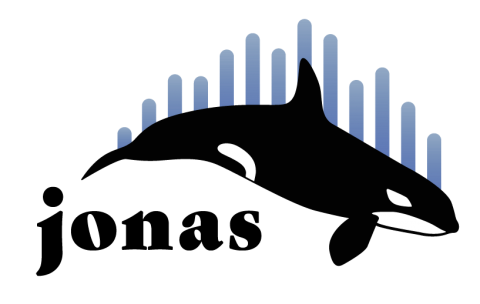
JONAS (2019-2022)
JONAS (Joint framework for Ocean Noise in the Atlantic Seas) aims to address the risks of acoustic pressures on biodiversity focusing on sensitive receptor species in the North Atlantic by streamlining ocean noise monitoring and risk prediction. Cost effective risk based approaches to monitoring and modelling noise across the maritime territories of the Atlantic Arc countries will be developed; these will be appropriate to the scale of the area, the levels of anthropogenic pressure, and the susceptibility of receptor species. JONAS draws on the outcomes from BIAS Life+ project, adapting and generalizing methods and standards from the Baltic to reflect the scale and complex oceanography of the NE Atlantic region. JONAS will address real-time noise management at local scale, in particularly sensitive areas, and support policy partners to develop regional-scale approaches that benefit vulnerable biodiversity and support MSFD implementation. The value of JONAS will be maximized by creating an innovative common operational platform and providing maritime decision support for real-time adaptive management of sensitive marine areas.

JOMOPANS (2018- 2020)
https://northsearegion.eu/jomopans/
Jomopans (EU INTERREG North Sea Region) aims to develop a framework for a fully operational joint monitoring programme for ambient noise in the North Sea. Output will be the tools necessary for managers, planners and other stakeholders to incorporate the effects of ambient noise in their assessment of the environmental status of the North Sea, and to evaluate measures to improve the environment. The project will deliver an innovative combination of modelling and high quality measurements at sea for an operational joint monitoring programme for ambient noise in the North Sea. The use of consistent measurement standards and interpretation tools will enable marine managers, planners and other stakeholders internationally to identify, for the first time, where noise may adversely affect the North Sea. The project will explore the effectiveness of various options for reducing these environmental impacts through coordinated management measures across the North Sea basin. Sound sources, sound transmission, and the distributions of vulnerable species in the North Sea are all transnational questions which must be tackled transnationally, as specifically required by the Marine Strategy Framework Directive. Marine Scotland Science are a key project partner, working predominantly on the acoustic data collection at three sites in the Scottish sector of the North Sea, alongside other partner organisations in all North Sea bordering nations (Sweden, Norway, Denmark, Germany, Netherlands, Belgium and England). The lead partner is Rijkswaterstaat from the Netherlands. The project will run for three years.

SEANSE (2018 – 2020)
Developments in the North Sea, including renewable energy, are ramping up fast and increasingly have cross-border impacts. North Sea countries are now in the process of preparing Maritime Spatial Plans (MSPs), however current legislation leaves space for different interpretations, which results in countries not always following comparable methods and approaches. The Strategic Environmental Assessment North Sea Energy (SEANSE) project aims to develop a coherent approach to Strategic Environmental Assessments (SEA) used in MSPs, with a focus on renewable energy, and test it in practice on a number of cases within the North Sea. Marine Scotland are a project partner, along with partners from Netherlands, Germany, France, and Denmark.

MarPAMM (2018-2022)
MarPAMM aims to develop tools for monitoring and managing a number of protected coastal marine environments in Ireland, Northern Ireland and Western Scotland. There are seven partners organisations, and the project is led by the Agri-Food and Biosciences Institute in Northern Ireland. MarPAMM partners will collect data on the abundance, distribution and movement of marine protected species and habitats. These data will help us produce new habitat maps and develop models for a range of species, including connectivity assessment for species with mobile life stages. Regional models will be created for sea birds; protected seabed-dwelling species and habitats; seal foraging and underwater noise; and for coastal processes. Working closely with stakeholders and partner projects such as COMPASS and SeaMonitor, the project will culminate in the development of six comprehensive MPA management plans.

